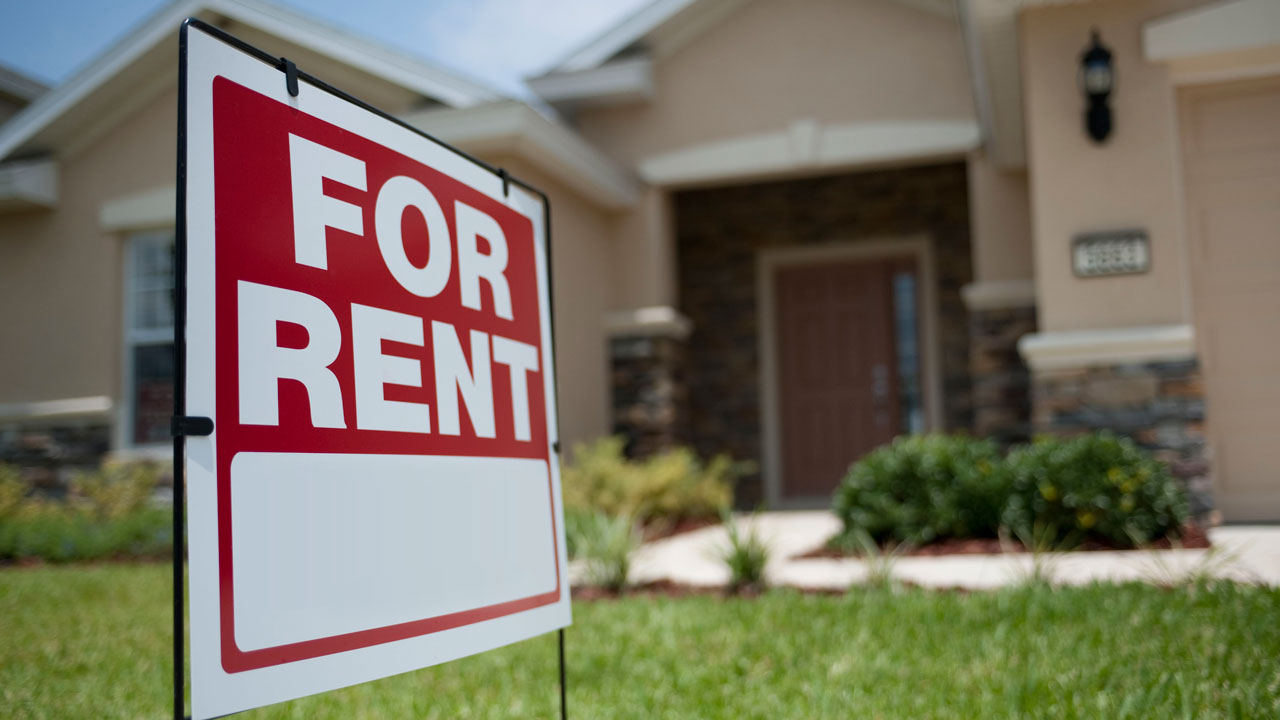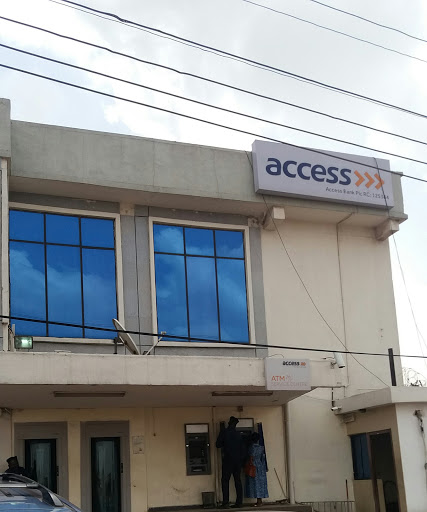Business
Mistakes to avoid when renting an apartments

Everyone loves to live in a beautiful apartment.
However, getting one involves a lot of things including the impact it will have on your wallet.
It’s easy to get lost in the thought of getting a new apartment and overlook the downsides of making a long-term commitment. In a country like Nigeria, conversations about renting an apartment has remained a regular thing.
An earlier report from PUNCH, the Nigerian Proptech – Estate Intel, said that home prices, both rental and sale have increased.
According to the report, construction costs have risen accordingly as cement prices have increased from N2,510 in 2021 to N4,200 in 2022.
The report noted that while all these costs were likely to have been impacted by rising property prices, there was no resulting increase in disposable income, making residential property unaffordable to the average Nigerian.
The report read in part, “A number of rules of thumb have been established to determine how much an individual should place aside for their rent based on their income.
“However, the most widely used rule is the 30 per cent rule proposed by the United States Government in 1981.
“This rule proposes that an individual should set aside at most 30 per cent of their monthly salary to pay for their monthly rent, or 30 per cent of their annual salary to pay for their annual rent.”
It added that, “This means that any individual or household that spends more than 30 per cent from the salary on rent is burdened.”
According to paylab.com, individuals between the ages of 25 and 34 years old in Nigeria collect a monthly salary between N66,000 and N350,000 depending on the type of job.
This translates to an annual salary between the range of N792,000 and N4.2m. The average salary collected within this age range is N191,000 per month, while the median is N161,000 per month.
For the reasons stated above, this may not be possible in some high-cost areas where rents are significantly higher. In such cases, you may have to compromise on location, living space, or amenities to keep your housing costs within your budget.
It is important to remember that if you spend a large portion of your income on housing, you will have limited funds available for other expenses and savings, so it’s important to find a balance that works for you and your financial situation.
Personal finance experts and real estate advisors provide advice on renting an apartment and various financial pitfalls to watch out for to avoid excessive spending or unexpected expenses.
An investment banker, the Founder, FinTribe, – a financial community just for women, Jennifer Awirigwe, explains to PUNCH, that while this rule is valid, “It cannot apply equally to everyone.” In her opinion, the amount someone pays determines the amount of budget allocated to it.
“Divide your rent by 12, the figure you have is what you save monthly for rent,” she says.
Explaining the concept of budgeting for rent, Awirigwe notes that, “It doesn’t make sense to spend your life working for your landlord. I am also of the school of thought that we are all unique in our needs, personal finance is personal.
“What makes sense to me may not make sense to someone else. For some people, spending more than what we consider appropriate is a lifesaver for them.”
She cites the example of an individual who considers the proximity to a job location as a justification for the rent.
Awirigwe says, “But the office environment could have upscale rent. They may decide to still pay the high rent just for their peace of mind. I won’t judge them, hopefully, the increased productivity.”
Meanwhile, the Chief Executive Officer of Wealthy Motley, Solafunmi Sosanya, says that budgeting is a key fact to note when renting and that individuals should think about the long plan to gather the next payment.
She says, “If your house rent is about N1.2m and let’s say you earn N450,000, you know that at the end of the year, you will pay the rent. Invariably you should know that from January, you should be removing N100,000 from your salary each month.”
However, she warns against renting apartments that are not compatible with one’s financial income.
She adds, “I can tell you that on a N250,000 salary, you should never be living in a house of N1.2m. Because essentially N1.2m is about five to six months of your salary so, that means you are working for six months of the year just to pay the landlord.”
Sosanya argues that factoring other living expenses apart from the cost of the rent will also put things in perspective for the rentee.
She says, “So you see that in the first instance when a person plans to take a house rent, after carefully doing some financial mathematics; If you think about it you will already see if you can afford the house or not. If you don’t do that, it is when you get into debt and start borrowing.”
Another school of thought on this matter notes that individuals should pay attention to understand all of the fees that are included, such as application fees, security deposits, and utility fees. Some landlords may also charge additional fees for amenities or services like parking or maintenance.
The President of the Mutual Estate Agents Association of Lagos, Nigeria, Lucas Akinbode, adds that working with credible agents who have traceable locations is important.
He also warns individuals not to “Pay for an uncompleted house, make sure that the apartment is ready before payment, and trust nobody either the agents or the landlord becase there are dubious agents and Landlords.”
Akinbode points out that anxiety when looking for an apartment often leads to mistakes,
He says, “Taking it slow and steady makes the easiest journey. Try to know the person you’re paying very well, either the landlord or someone with delegated power that has power of attorney. Make sure that you collect the receipt and key, then the agreement paper which stands as a bond between both of you.”
Above all be aware of hidden fees, from electricity debts incurred by previous tenants to terms of the lease agreement. If the rent is set to increase during the term of the lease, make sure you are comfortable with the amount of the increase and that it fits within your budget.
By considering these potential pitfalls and being proactive in budgeting and planning, you can avoid unexpected expenses and ensure that you are able to enjoy your apartment without financial stress.
Business
Nigeria’s GDP rate grew by 3.46% in Q3 2024, says NBS

The National Bureau of Statistics (NBS) says Nigeria’s annual gross domestic product (GDP) grew by 3.46 percent in the third quarter (Q3) of 2024.
The NBS, in its GDP report published on Monday, said the growth rate is higher than the 3.19 percent recorded in Q2 2024.
Business
Dangote refinery reduces ex-depot price of petrol to N970 for oil marketers

The Dangote Petroleum Refinery has announced a reduction in its ex-depot price of premium motor spirit (PMS), also known as petrol, to N970 per litre for oil marketers.
This is a cut from the refinery’s N990 ex-depot price announced earlier this month, according to a statement on Sunday.
The slash would help marketers save about N20 on each litre of petrol bought from the Lekki-based plant.
Anthony Chiejina, Dangote Group’s chief branding and communications officer, said the move is the refinery’s way of appreciating Nigerians “for their unwavering support in making the refinery a dream come true”.
“In addition, this is to thank the government for their support as this will complement the measures put in place to encourage domestic enterprise for our collective well-being,” the statement reads.
“While the refinery would not compromise on the quality of its petroleum products, we assure you of best quality products that are environmentally friendly and sustainable.
“We are determined to keep ramping up production to meet and surpass our domestic fuel consumption; thus, dispelling any fear of a shortfall in supply.”
Business
Allegation of missing fund untrue, says Access Bank

Access Bank Limited has dismissed as untrue allegations of missing fund and unethical behaviour.
The Bank in a statement said: “Our attention has been drawn to a video on social media wherein allegations of missing funds and unethical behaviour have been made against Access Bank PLC.
“First and foremost, we wish to emphasise that the safety and security of our customers’ funds are core priorities which we take seriously. Second, Access Bank Plc does not engage in or condone any unethical behaviour.
“In the instant case, the allegations of missing funds in the Bank are most untrue and baseless.
“There is no N500million or any other fund or amount missing from the subject customer’s account or from any other customer’s account with us.
“We and other independent stakeholders in the banking industry have thoroughly investigated these allegations and independently arrived at the same conclusions.
“Access Bank PLC operates with the highest ethical standards, and we protect our customers’ interests whilst also respecting privacy laws.
“Consequently, whilst we have engaged and will continue to engage with our customers, we must advise the public not to rely on or believe sensational and unverified claims that are designed to titillate and mislead the public.
“We remain committed to serving our customers.”
-

 Celebrities1 week ago
Celebrities1 week agoDaddy Freeze, Akah Nnani clash over Emmanuel Iren
-

 Business1 week ago
Business1 week agoLagos state government to commence upgrade of major junctions in Ikeja axis, seeks residents’ cooperation
-

 Politics1 week ago
Politics1 week agoDSS operatives arrest man with bags of cash during Ondo guber
-

 Special Features3 days ago
Special Features3 days agoIyabo Ojo, Brainjotter, Dayo Oketola, Penzaarville, Tomiwa and others to speak at the Bodex Social Media Hangout 5.0
-

 Health1 week ago
Health1 week agoFive ways to rid your home of ants
-

 News1 week ago
News1 week agoAlice Loksha, abducted UNICEF nurse, escapes captivity after 6 years
-

 News1 week ago
News1 week agoNnamdi Emeh: Suspect Facing Charges In Court, Process Independent Of Police Influence
-

 Politics1 week ago
Politics1 week agoAiyedatiwa takes commanding lead in Ondo guber poll after winning 15 of 18 LGAs


















